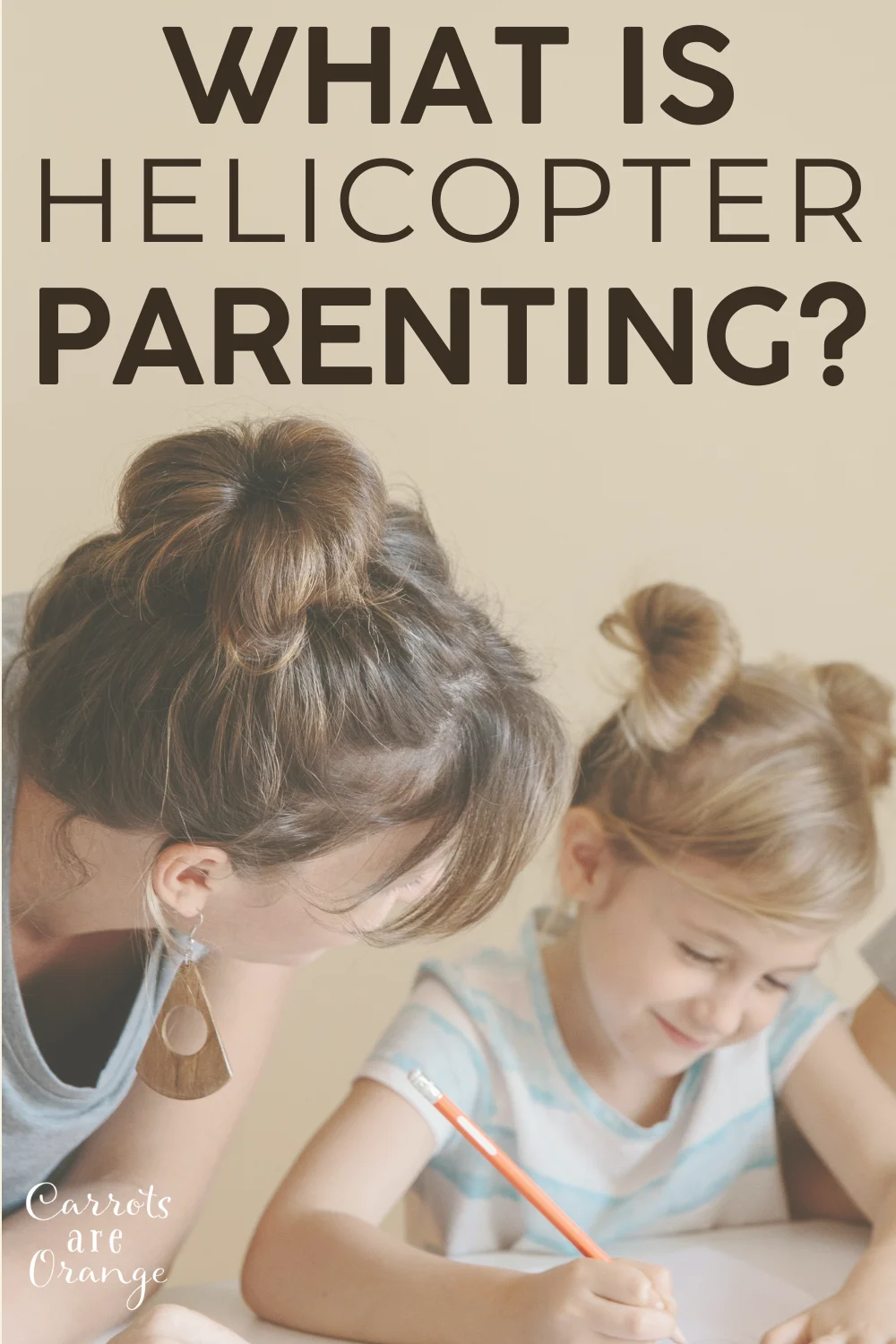Are you a parent who wants to see your child grow into a confident, independent individual, but often finds yourself hovering over their every move? Balancing the need to protect and nurture with allowing your child the space to explore and learn can be a challenging task. In today’s fast-paced world, the helicopter parenting style has become a common phenomenon.
Helicopter parenting is characterized by excessive control and constant involvement in every aspect of a child’s life. However, fostering healthy independence is crucial for your child’s development and self-esteem.

In this post, we will explore practical strategies and tips to help you avoid helicopter parenting and create an environment that encourages your child’s autonomy and personal growth.
From setting boundaries to promoting self-reliance, we will delve into actionable steps that can empower both you and your child on this journey toward finding the perfect balance.
So, let’s dive in and discover how you can support your child’s independence while still being their guiding light.
What is the Helicopter Parenting Style?
Helicopter parenting refers to the practice of overly monitoring and controlling a child’s life, often to an excessive extent. It is characterized by constant hovering, involvement in every decision, and an overwhelming need to protect and shield the child from any potential harm or failure.
Helicopter parents tend to be highly involved in their child’s academics, extracurricular activities, social life, and even personal relationships. While their intentions may be rooted in love and concern, this style of parenting can have detrimental effects on a child’s overall development.

The effects of the helicopter parenting style on children can be far-reaching. Research suggests that children of helicopter parents may struggle with decision-making, problem-solving, and self-advocacy skills. They may also experience higher levels of anxiety, lack of self-confidence, and difficulty in developing a sense of independence.
Constant parental intervention can hinder a child’s ability to learn from their mistakes, face challenges, and develop resilience. It is important for parents to recognize the signs of helicopter parenting and take proactive steps toward fostering healthy independence in their children.
Signs that you may be a helicopter parent
What type of parenting style do you exhibit?
While every parent wants the best for their child, it is essential to be aware of the signs that indicate you may be crossing the line into helicopter parenting. Ask yourself if you resonate with any of the following behaviors:
- Constantly checking in on your child’s activities, whereabouts, and social interactions.
- Over-involvement in your child’s schoolwork, including completing assignments or projects for them.
- Making decisions for your child without allowing them to have a say or express their opinion.
- Not giving your child the freedom to make mistakes or face the consequences of their actions.
- Prioritizing your child’s success and achievements over their well-being and happiness.
- Difficulty in letting go or allowing your child to take risks and explore new experiences.
If you find yourself exhibiting some of these signs, it’s important to recognize that you can make changes and foster a healthier environment for your child’s growth.

The importance of fostering healthy independence in children
Fostering healthy independence in children is crucial for their overall well-being and development. When children are given the opportunity to explore, make decisions, and learn from their experiences, they develop essential life skills such as problem-solving, critical thinking, and resilience.
Independence allows children to develop their own identities, build self-confidence, and establish healthy boundaries. By fostering healthy independence, parents can empower their children to become self-reliant individuals capable of navigating the challenges of adulthood.
Tips for avoiding the helicopter parenting style
Avoiding helicopter parenting requires a conscious effort to strike a balance between involvement and independence. Here are some practical tips to help you foster healthy independence in your children:
Building trust and communication with your child
Open and honest communication is the foundation of a healthy parent-child relationship. Building trust with your child is essential to create an environment where they feel comfortable expressing their thoughts, concerns, and desires. Encourage open dialogue, active listening, and empathy. By understanding and respecting your child’s perspective, you can foster a sense of autonomy and independence.
Additionally, involving your child in decision-making processes can help them develop decision-making skills and a sense of ownership. Rather than making decisions for them, guide them through the process of weighing options, considering consequences, and making informed choices.
This collaborative approach allows your child to feel empowered and capable of making decisions on their own.
Encouraging autonomy and decision-making skills
One of the key aspects of fostering healthy independence is encouraging autonomy and decision-making skills in your child. Provide opportunities for them to take on age-appropriate responsibilities and make choices.
This can be as simple as allowing them to choose their own outfits, decide on extracurricular activities, or take charge of small household tasks. Encouraging autonomy not only boosts their self-esteem but also helps them develop a sense of responsibility and accountability.
It is important to remember that mistakes are a natural part of learning and growth. Allow your child to make mistakes and learn from them. Instead of swooping in to fix every problem or shield them from failure, offer guidance and support. This teaches them resilience, problem-solving skills, and the ability to bounce back from setbacks.

“To let the child do as he likes when he has not yet developed any powers of control is to betray the idea of freedom.”
Dr. Maria Montessori
Setting boundaries and allowing for natural consequences
Setting boundaries is essential for teaching children about personal responsibility and accountability. Clearly communicate your expectations, rules, and consequences, and ensure they are age-appropriate. By setting reasonable boundaries, you provide structure and guidance while giving your child the freedom to explore within those limits.
Allowing natural consequences to occur can be a powerful learning tool. When children experience the consequences of their actions, they learn valuable lessons and develop a sense of personal responsibility.
However, it is important to ensure that the consequences are not overly harsh or detrimental to their well-being. Strike a balance between allowing natural consequences and providing support when needed.
Seeking support and guidance as a parent
Parenting is a journey filled with challenges, and it is okay to seek support and guidance along the way. Connect with other parents, join parenting groups, or seek advice from professionals.
Sharing experiences and learning from others can provide valuable insights and help you navigate the complexities of parenting without resorting to helicopter tendencies.
Remember, it is natural to feel a sense of protectiveness towards your child, but finding the right balance between involvement and independence is essential for their growth and development. Embrace the journey of fostering healthy independence and watch your child thrive.
Finding the right balance between involvement and independence
In today’s fast-paced world, it is easy for parents to fall into the trap of helicopter parenting, wanting to shield their children from any potential harm or failure. However, fostering healthy independence is crucial for a child’s development and self-esteem.
By recognizing the signs of the helicopter parenting style so often talked about and implementing practical strategies, parents can create an environment that encourages autonomy, decision-making skills, and personal growth.
Building trust and communication, encouraging autonomy, setting boundaries, and allowing for natural consequences are key components of avoiding helicopter parenting. Remember that finding the right balance is a continuous process that requires patience, understanding, and adaptability.
By fostering healthy independence in your child, you empower them to become confident, self-reliant individuals capable of navigating the challenges of life. So take a step back, and watch your child soar as they discover their own wings.

